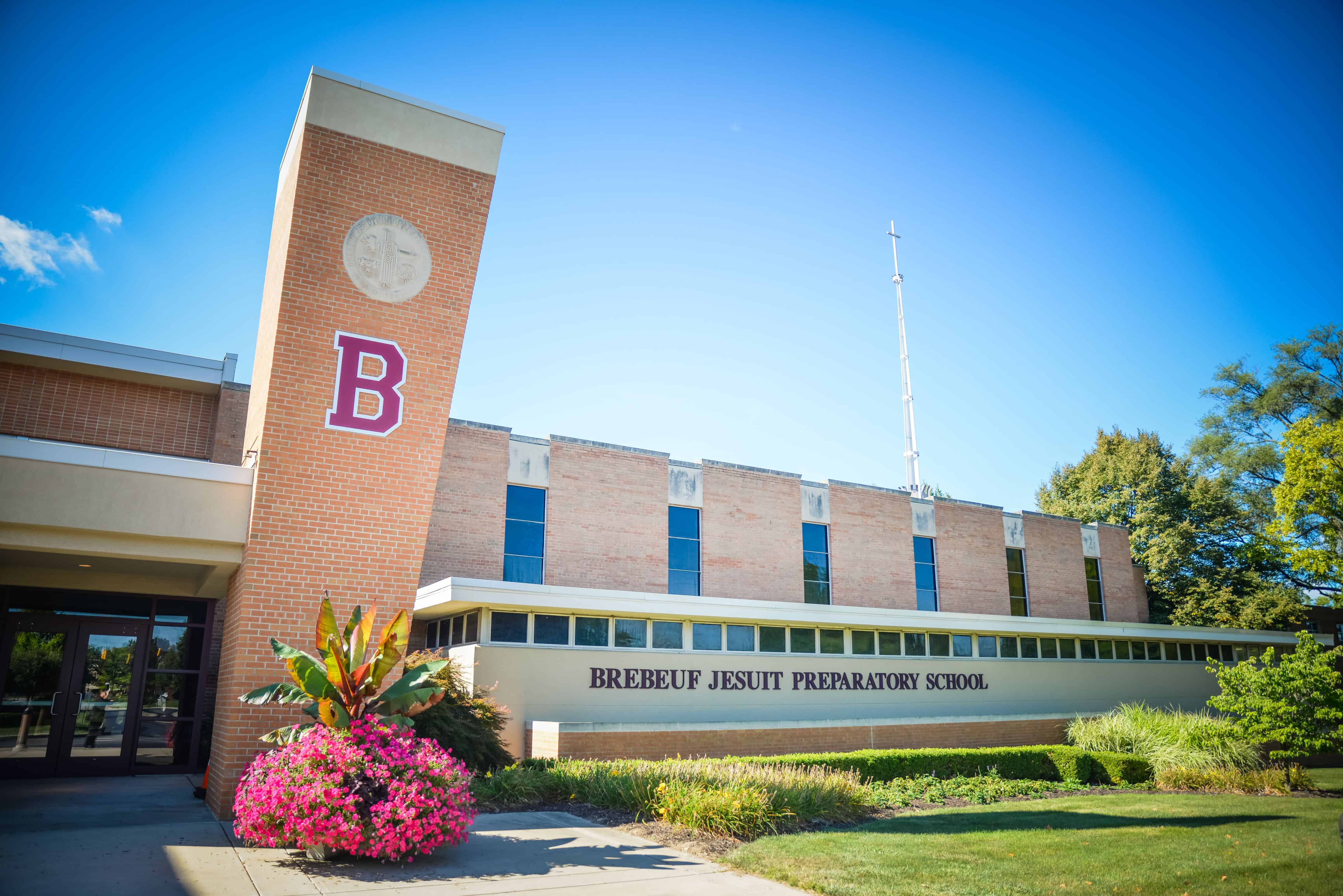The divides in the U.S. Catholic Church were on full display last week. While many expressed pride at being “Jesuit-educated,” we are mourning the lack of healing in our Church and the degree to which the LGBT community continues to be marginalized.
The leaders of Brebeuf Jesuit College Preparatory School in Indianapolis refused to fire one of their teachers. In response, the Archbishop of Indianapolis revoked Brebeuf Jesuit’s ability to call itself Catholic. The Midwest Province of the Society of Jesus is standing by the school.
The precipitating incident in this standoff is the Archbishop’s demand that Brebeuf fire a teacher who entered into a civil same-gender marriage two years ago and the school’s ensuing refusal. In the Archbishop’s statement, he argues all employees at Catholic schools are ministers, and that anyone openly contradicting Church teaching cannot serve in this ministerial capacity. As the leader of the archdiocese, it is in his purview to make these requests as overseer of faith, morality and Catholic education. However, as Brian Paulson, S.J., points out in his statement, the intervention of a diocese in employment matters of an educational institution managed by a religious order is unprecedented.
As for their decision to not terminate employment, Brebeuf Jesuit’s Board of Trustees chose to follow their informed conscience. In their statement, the trustees wrote:
“After long and prayerful consideration, we determined that following the Archdiocese’s directive would not only violate our informed conscience on this particular matter, but also set a concerning precedent for future interference in the school’s operations and other governance matters that Brebeuf Jesuit leadership has historically had the sole right and privilege to address and decide.”
What do we take away from this moment? First and foremost, this is a painful, wounded experience of division in the church. This conflict reveals with awesome clarity the deep divide there is in the U.S. Catholic Church. While the Church’s teaching on same-sex marriage was the point of disagreement this time, there are also other issues where significant numbers of Catholics are in tension with official teaching. These debates create fault lines within the Church and drive some people out of the pews while others remain firmly in place.
The Archdiocese seems to desire clarity in its application of Church teaching regarding marriage. Brebeuf is unwilling to cooperate with an action that would threaten the human dignity of one of its teachers. Those who prioritize doctrinal clarity may find themselves tempted to declare the Archdiocese “right” and Brebeuf “wrong.” Those whose instinct is to stand against the continued targeting of the Catholic LGBT community may be inclined to announce Brebeuf as “right” and the Archdiocese “wrong.”
We do not want further polarization in our Church. We support and stand with Brebeuf Jesuit and the Midwest Province of the Society of Jesus for refusing to cooperate with the further marginalization of the LGBT community. However, for us, as young Jesuits, the clash between Brebeuf Jesuit and the Archdiocese evokes less pride over being Jesuit-educated and more sorrow for the widening division of our Church. As such, this does not feel like a time to celebrate, as these events bear witness to the seemingly-expanding disconnect within the U.S. Catholic Church.
What happened at Brebeuf Jesuit could very well happen again at many other Catholic schools. Catholic schools have avoided knotty issues of LGBT employees and faculty for a long time, but those days may be over. As America reported in 2018, the employment of over 80 persons have been terminated due to issues with sexual orientation in the past decade.
Moreover, the pressure from outside groups that are self-appointed guardians of Church teaching has only increased. The loud, virulent noise made by these groups is deeply uncharitable, and pushes bishops and school leaders into painful confrontations rather than meaningful dialogue. As Pope Francis reminds us, our call is to facilitate grace, not conflict:
“The Church is called to be the house of the Father, with doors always wide open…Frequently, we act as arbiters of grace rather than its facilitators. But the Church is not a tollhouse; it is the house of the Father, where there is a place for everyone, with all their problems.” Gaudete et Exsultate, 47.
Last but far from least, it is a matter of genuine sorrow that there should be conflict between a Jesuit school and their local ordinary. We are sons of the saint who devised the “Rules for Thinking with the Church,” and we are committed to obedience to the hierarchical Church. However, we find ourselves torn when parts of the Church are in conflict with one another.
Like so much else in the Church today, the conflict is a false one: between affirming Church teaching and affirming Church members. We are stuck in a Groundhog Day nightmare in which the teachings of the Church are routinely seen to be invoked without regard for the lived experiences of its most marginalized members, with very little sense for how the two sides might be bridged.
The need for reconciliation is real and urgent. Pope Francis has repeatedly called the Church to a deeper practice of “encounter.” Without openly and humbly taking the time to encounter “the other,” no matter who they are, what role they have in the Church, or how much we disagree with them, reconciliation will be impossible.
What we most need now is a way through this impasse, one that bravely faces conflict but also lovingly gazes upon the human condition. Until then, conflicts such as these will have no winners, only losers.1
- Since the authoring of this post, Cathedral High School, also in Indianapolis, terminated the contract of one of its teachers who is in a same-gendered marriage. More details can be found here. ↩


